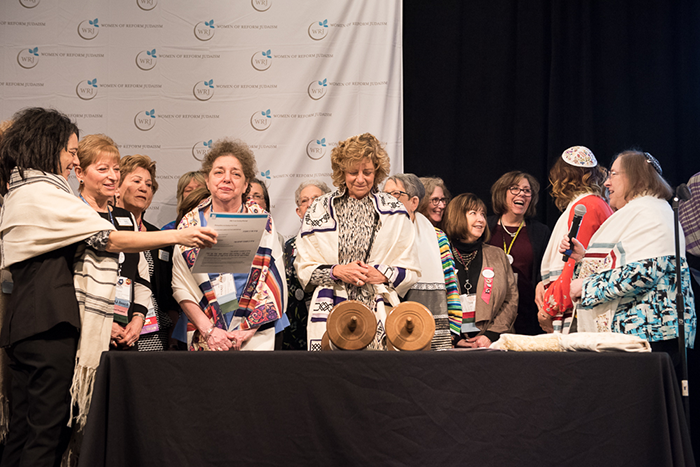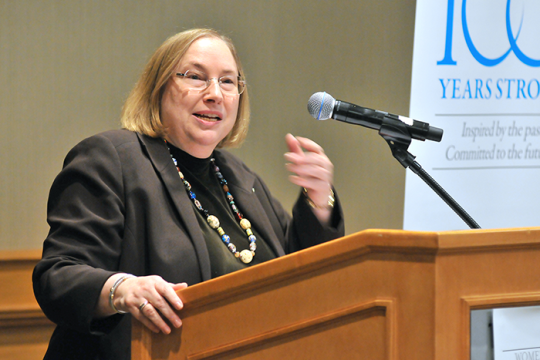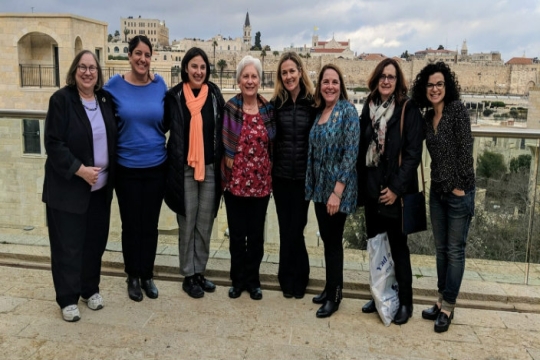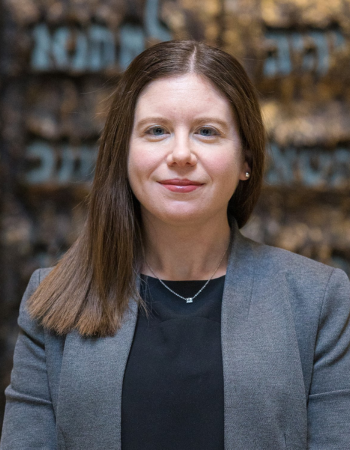
During college, I lived on a kibbutz in the Arava desert in southern Israel. At dawn and twilight, I hiked while admiring the striking red mountains just over the eastern border with Jordan and the subtle peaks of the Negev Highlands to the west. I was in the Jordan Rift Valley, a basin formed by the seam between two tectonic plates -- a quiet, sacred, liminal space. I still see the desert as a place of possibility.
It’s meaningful that we read the Torah portions detailing our desert wanderings in July. This month, many clergy, leaders, and professionals will begin or end a leadership chapter. July is a month for Jewish professionals to start new roles and for synagogue leaders to end or commence their terms as board members and committee chairs. It is a time of transition.
This month, I’m beginning my new role as the executive director of Women of Reform Judaism (WRJ), the Reform Movement’s affiliate that focuses on women’s empowerment. It is a meaningful year to join the WRJ, whose history is deeply entwined with the 150-year history of the Union for Reform Judaism, which we celebrate this year. This time of transition, of wandering in the desert, can represent potential. Three stories from our time in the desert teach us that transition can be a place of revelation, redemption, and creativity.
Revelation
We received the Torah in the wilderness (Exodus 20). On an earlier sojourn in the wilderness, God laid the groundwork for a future relationship with Moses as our leader. When Moses paused long enough to observe that the burning bush was not being consumed, God knew this was the leader who would free us from Egypt and remain open to receiving new wisdom (Exodus 3).
Redemption
The story of our redemption begins in Egypt and ends in Israel. During this transition, Moses sent 12 spies to observe the land before all the people entered. Ten spies returned with pessimistic reports. “We are like grasshoppers,” they moaned. “The people there are giants. We’ll never defeat them” (Numbers 13:33).
However, two spies, Joshua and Caleb, returned with a hopeful vision. They acknowledged the difficult road ahead but focused on inspiring the people toward redemption in the Promised Land. This is what made them leaders of the next generation (Numbers 13-14).
Creativity
On Mount Sinai, God gave us the Torah - the wisdom contained in the scrolls and every future interpretation- both the written Torah and the oral Torah. Not long after we received the Torah, the daughters of Zelophehad -- Noa, Mahlah, Hoglah, Tirzah, and Milcah -- modeled the importance of creativity and feminist interpretation. They went to Moses, explaining that the laws detailing inheritance do not apply to them because their father left no male heir. Moses was stumped and turned to God. God declared, “the claim of the daughters of Zelophehad is just!” and amended the law (Numbers 27).
As I begin my role with WRJ, I am grateful to the women who have come before me. The daughters of Zelophehad, and the past and present leaders of the WRJ, have laid the foundation with their revelatory ideas, redemptive visions, and feminist reinterpretations of our world.
Revelation, redemption, and creativity are the gifts of the desert. This time of transition can be a blessing for all of us making changes this July. May we be blessed with revelatory wisdom, redemptive hope, and creative possibilities.
Related Posts

A Leadership Journey Inspired by Reform Jewish Women

Inspirational Reform Connections in Israel


